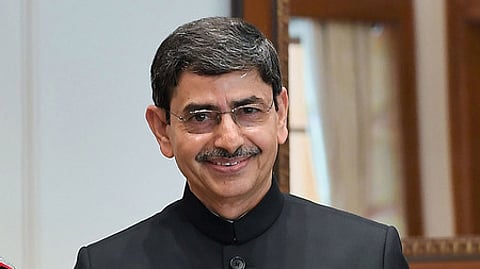

NEW DELHI: The Supreme Court late Friday night released its 415-page verdict on the Tamil Nadu government’s appeal against Governor RN Ravi for withholding assent to several bills passed by the State legislature, declaring that the ten bills in question are deemed to have received the Governor’s assent.
The judgment was uploaded on the official site of the Supreme Court.
"We are in no way undermining the office of the Governor. All we say is that the Governor must act with due deference to the settled conventions of parliamentary democracy; respecting the will of the people being expressed through the legislature as-well as the elected government responsible to the people. He must perform his role of a friend, philosopher and guide with dispassion, guided not by considerations of political expediency but by the sanctity of the constitutional oath he undertakes," said, the two-judge bench of the apex court, headed by Justice J B Pardiwala and also comprising Justice R Mahadevan, in the verdict.
The top court, noted in its judgment that in times of conflict, he must be the harbinger of consensus and resolution, lubricating the functioning of the State machinery by his sagacity, wisdom and not run it into a standstill.
The court clarified that the Governor must be the catalyst and not an inhibitor. "All his actions must be impelled keeping in mind the dignity of the high constitutional office that he occupies," it said.
The court added that having regard to the unduly long period of time for which these Bills were kept pending by the Governor of withholding of assent and in view of the scant respect shown by the Governor to the decision of this Court in one earlier case, appear to be writ large in the discharge of his functions.
"We are left with no other option but to exercise our inherent powers under Article 142 of the Constitution for the purpose of declaring these ten Bills as deemed to have been assented on the date when they were presented to the Governor after being reconsidered by the State legislature i.e., on Nov 18, 2023," it said.
The court in its strictest words remarked that we find it apposite to observe that constitutional authorities occupying high offices must be guided by the values of the Constitution. "These values that are so cherished by the people of India are a result of years of struggle and sacrifice of our forefathers. When called upon to take decisions, such authorities must not give in to ephemeral political considerations but rather be guided by the spirit that underlies the Constitution," the SC opined.
Pointing finger to the Governor, Dr Ravi for sitting over several bills passed by the State legislature, the court said, "it is our duty as the highest constitutional court to recognize such evil and increasingly strengthen our initiative to remove them."
It said, they (constitutional functionaries) must look within and reflect whether their actions are informed by their constitutional oath and if the course of action adopted by them furthers the ideals enshrined in the Constitution. "If the authorities attempt to deliberately bypass the constitutional mandate, they are tinkering with the very ideals revered by its people upon which this country has been built," the court added.
The court also cited Dr. B R Ambedkar's concluding speech in the Constituent Assembly, which is as relevant today as it was in 1949 "However good a Constitution may be, it is sure to turn out bad because those who are called to work it, happen to be a bad lot. However bad a Constitution may be, it may turn out to be good if those who are called to work it, happen to be a good lot".
The court stated that it was our duty as the highest constitutional court to recognize such evil and increasingly strengthen our initiative to remove them. In the last, we may say with the utmost responsibility and all the humility at our command that it is only when the constitutional functionaries exercise their powers by and under the Constitution that they show deference to the people of India who have given the Constitution to themselves.
"The soul of India is its Constitution. Our Republic, the foresight of dynamic visionaries. What a great edifice, they built, ensuring sovereignty with democratic values. The Constitution is our bedrock ensuring our safety and security," the SC added.
The Constitution outlines a process that keeps us rooted in values. We read it for reference and for every policy decision. Without it, we would be lost and make many mistakes. "It is now seventy-five years old, but we still keep turning to it, why? Because it guarantees our rights and sets benchmarks for our responsibilities. The laws and rules that uplift all people sprout from its pristine womb, welfare of all is its primary concern, but its sanctity and safety should be our prime concern," the SC said.